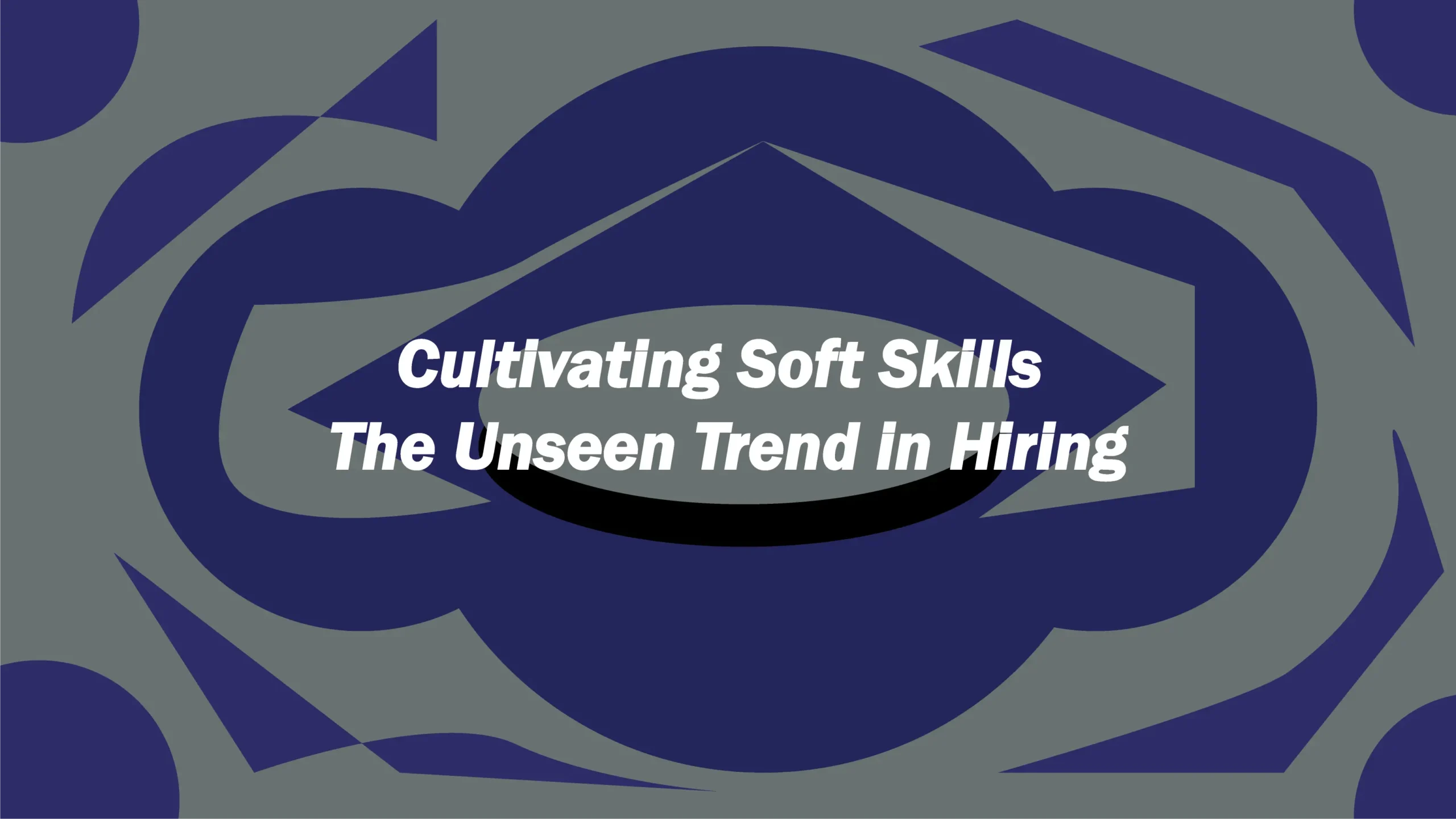
Cultivating Soft Skills: The Unseen Trend in Hiring
In the rapidly evolving landscape of employment, where technological advancements and industry-specific expertise are crucial, there’s an increasingly significant aspect that often goes unnoticed but holds immense weight in the hiring process – soft skills. While technical skills and qualifications are undoubtedly important, the ability to navigate the nuances of interpersonal relationships, communication, and adaptability is emerging as a game-changer in today’s job market.
Understanding Soft Skills:
Soft skills, often referred to as interpersonal or people skills, encompass a wide range of attributes that define how individuals interact with others, handle challenges, and navigate their professional and personal lives. Examples of soft skills include communication, teamwork, adaptability, problem-solving, emotional intelligence, and time management.
The Rise of Soft Skills in Hiring:
Traditionally, resumes were primarily focused on hard skills and educational qualifications. However, in recent years, employers have started recognizing the vital role that soft skills play in fostering a positive work environment, enhancing team dynamics, and driving overall success. As a result, soft skills have become a critical factor in the hiring process.
Why Soft Skills Matter:
Collaboration and Teamwork:
In today’s collaborative workplaces, the ability to work seamlessly within a team is paramount. candidate who can effectively communicate, listen, and contribute to a positive team dynamic are highly sought after.
Communication Skills:
Clear and effective communication is crucial in any professional setting. Individuals who can articulate their thoughts, actively listen, and convey information with clarity are perceived as valuable assets in the workplace.
Adaptability and Flexibility:
As industries undergo rapid changes, adaptability becomes a key soft skill. Employers seek candidate who can embrace change, learn quickly, and thrive in dynamic environments.
Problem-Solving and Critical Thinking:
The ability to analyze situations, think critically, and propose effective solutions is highly valued. candidate who demonstrate strong problem-solving skills contribute to innovation and overall organizational success.
Emotional Intelligence:
Understanding and managing one’s emotions and recognizing emotions in others is a critical soft skill. Individuals with high emotional intelligence can navigate workplace relationships, handle conflicts, and lead with empathy.
Time Management:
Effectively managing time and prioritizing tasks is essential for productivity. candidate who demonstrate strong organizational skills and the ability to meet deadlines are often seen as reliable contributors.
How to Cultivate Soft Skills:
Professional Development Programs:
Engage in professional development programs that focus on soft skills. Attend workshops, seminars, or online courses that address communication, leadership, and emotional intelligence.
Seek Feedback and Reflect:
Actively seek feedback from colleagues, mentors, or supervisors to understand areas for improvement. Reflect on experiences and consider how soft skills can be applied to enhance performance.
Join Team-based Projects:
Participate in team-based projects to enhance collaboration and teamwork skills. This hands-on experience allows individuals to understand the dynamics of working in a group setting.
Practice Active Listening:
Develop active listening skills by paying close attention to others during conversations. Respond thoughtfully to demonstrate understanding and create stronger connections with colleagues.
Embrace New Challenges:
Actively seek out new challenges and opportunities that push you outside your comfort zone. Embracing challenges fosters adaptability and resilience, key components of soft skills.
Conclusion:
Cultivating soft skills is not just a trend; it’s a necessity in today’s competitive job market. candidate who recognize the importance of these skills and actively work towards their development position themselves as well-rounded professionals. Employers are increasingly prioritizing candidate who not only bring technical expertise but also possess the interpersonal finesse to thrive in diverse and collaborative work environments. As you embark on your career journey, remember that while hard skills may open doors, it’s the soft skills that keep those doors open and lead to long-term success.
